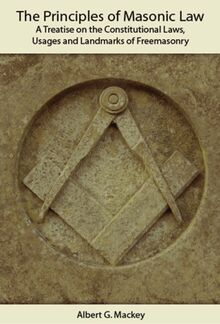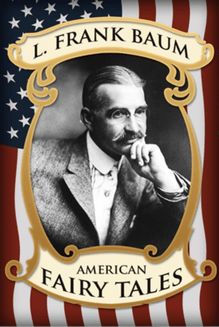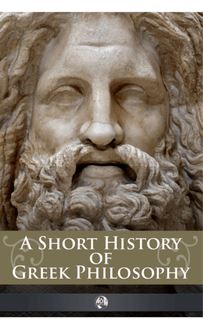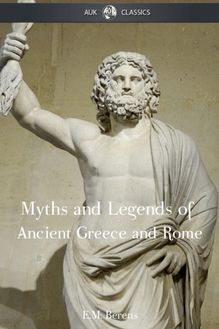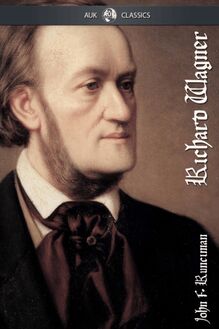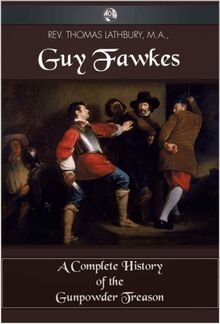-
 Univers
Univers
-
 Ebooks
Ebooks
-
 Livres audio
Livres audio
-
 Presse
Presse
-
 Podcasts
Podcasts
-
 BD
BD
-
 Documents
Documents
-
- Cours
- Révisions
- Ressources pédagogiques
- Sciences de l’éducation
- Manuels scolaires
- Langues
- Travaux de classe
- Annales de BEP
- Etudes supérieures
- Maternelle et primaire
- Fiches de lecture
- Orientation scolaire
- Méthodologie
- Corrigés de devoir
- Annales d’examens et concours
- Annales du bac
- Annales du brevet
- Rapports de stage
La lecture à portée de main
Vous pourrez modifier la taille du texte de cet ouvrage
Découvre YouScribe en t'inscrivant gratuitement
Je m'inscrisDécouvre YouScribe en t'inscrivant gratuitement
Je m'inscrisEn savoir plus
Vous pourrez modifier la taille du texte de cet ouvrage
En savoir plus

Description
Sujets
Informations
| Publié par | Andrews UK |
| Date de parution | 02 janvier 2011 |
| Nombre de lectures | 0 |
| EAN13 | 9781849892797 |
| Langue | English |
Informations légales : prix de location à la page 0,0300€. Cette information est donnée uniquement à titre indicatif conformément à la législation en vigueur.
Extrait
Title Page
A SHORT HISTORY
OF
GREEK PHILOSOPHY
By
John Marshall
Publisher Information
This electronic version published in 2010 by
Andrews UK Limited
www.andrewsuk.com
This edited version, including layout, typography, additions to text, cover artwork and other unique factors is copyright Andrews UK 2010. No part of this digital publication may be reproduced, stored in a retrieval system or transmitted in any form or by any means electronic, mechanical, photocopying, recording or otherwise without written permission of the copyright owner.
Preface
The main purpose which I have had in view in writing this book has been to present an account of Greek philosophy which, within strict limits of brevity, shall be at once authentic and interesting - authentic , as being based on the original works themselves, and not on any secondary sources; interesting , as presenting to the ordinary English reader, in language freed as far as possible from technicality and abstruseness, the great thoughts of the greatest men of antiquity on questions of permanent significance and value. There has been no attempt to shirk the really philosophic problems which these men tried in their day to solve; but I have endeavoured to show, by a sympathetic treatment of them, that these problems were no mere wars of words, but that in fact the philosophers of twenty-four centuries ago were dealing with exactly similar difficulties as to the bases of belief and of right action as, under different forms, beset thoughtful men and women to-day.
In the general treatment of the subject, I have followed in the main the order, and drawn chiefly on the selection of passages, in Ritter and Preller’s Historia Philosophiae Graecae . It is hoped that in this way the little book may be found useful at the universities, as a running commentary on that excellent work; and the better to aid students in the use of it for that purpose, the corresponding sections in Ritter and Preller are indicated by the figures in the margin.
In the sections on Plato, and occasionally elsewhere, I have drawn to some extent, by the kind permission of the Delegates of the Clarendon Press and his own, on Professor Jowett’s great commentary and translation.
John Marshall
Chapter I
The School Of Miletus
The question of Thales - Water the beginning of things - Soul in all things - Mystery in science - Abstraction and reality - Theory of development
THALES
For several centuries prior to the great Persian invasions of Greece, perhaps the very greatest and wealthiest city of the Greek world was Miletus. Situate about the centre of the Ionian coasts of Asia Minor, with four magnificent harbours and a strongly defensible position, it gathered to itself much of the great overland trade, which has flowed for thousands of years eastward and westward between India and the Mediterranean; while by its great fleets it created a new world of its own along the Black Sea coast. Its colonies there were so numerous that Miletus was named ‘Mother of Eighty Cities.’ From Abydus on the Bosphorus, past Sinope, and so onward to the Crimea and the Don, and thence round to Thrace, a busy community of colonies, mining, manufacturing, ship-building, corn-raising, owned Miletus for their mother-city. Its marts must therefore have been crowded with merchants of every country from India to Spain, from Arabia to Russia; the riches and the wonders of every clime must have become familiar to its inhabitants. And fitly enough, therefore, in this city was born the first notable Greek geographer, the first constructor of a map, the first observer of natural and other curiosities, the first recorder of varieties of custom among various communities, the first speculator on the causes of strange phenomena, - Hecataeus. His work is in great part lost, but we know a good deal about it from the frequent references to him and it in the work of his rival and follower, Herodotus.
The city naturally held a leading place politically as well as commercially. Empire in our sense was alien to the instincts of the Greek race; but Miletus was for centuries recognised as the foremost member of a great commercial and political league, the political character of the league becoming more defined, as first the Lydian and then the Persian monarchy became an aggressive neighbour on its borders.
It was in this active, prosperous, enterprising state, and at the period of its highest activity, that Thales, statesman, practical engineer, mathematician, philosopher, flourished. Without attempting to fix his date too closely, we may take it that he was a leading man in Miletus for the greater part of the first half of the sixth century before Christ. We hear of an eclipse predicted by him, of the course of a river usefully changed, of shrewd and profitable handling of the market, of wise advice in the general councils of the league. He seems to have been at once a student of mathematics and an observer of nature, and withal something having analogy with both, an inquirer or speculator into the origin of things. To us nowadays this suggests a student of geology, or physiography, or some such branch of physical science; to Thales it probably rather suggested a theoretical inquiry into the simplest thinkable aspect of things as existing. “Under what form known to us,” he would seem to have asked, “may we assume an identity in all known things, so as best to cover or render explicable the things as we know them?” The ‘beginning’ of things (for it was thus he described this assumed identity) was not conceived by him as something which was long ages before, and which had ceased to be; rather it meant the reality of things now. Thales then was the putter of a question, which had not been asked expressly before, but which has never ceased to be asked since. He was also the formulator of a new meaning for a word; the word ‘beginning’ ((Greek) arche ) got the meaning of ‘underlying reality’ and so of ‘ending’ as well. In short, he so dealt with a word, on the surface of it implying time, as to eliminate the idea of time, and suggest a method of looking at the world, more profound and far-reaching than had been before imagined.
It is interesting to find that the man who was thus the first philosopher, the first observer who took a metaphysical, non-temporal, analytical view of the world, and so became the predecessor of all those votaries of ‘other-world’ ways of thinking, - whether as academic idealist, or ‘budge doctor of the Stoic fur,’ or Christian ascetic or what not, whose ways are such a puzzle to the ‘hard-headed practical man,’ - was himself one of the shrewdest men of his day, so shrewd that by common consent he was placed foremost in antiquity among the Seven Sages, or seven shrewd men, whose practical wisdom became a world’s tradition, enshrined in anecdote and crystallised in proverb.
The chief record that we possess of the philosophic teaching of Thales is contained in an interesting notice of earlier philosophies by Aristotle, the main part of which as regards Thales runs as follows:
“The early philosophers as a rule formulated the originative principle ((Greek) arche ) of all things under some material expression. By the originative principle or element of things they meant that of which all existing things are composed, that which determines their coming into being, and into which they pass on ceasing to be. Where these philosophers differed from each other was simply in the answer which they gave to the question what was the nature of this principle, the differences of view among them applying both to the number, and to the character, of the supposed element or elements.
“Thales, the pioneer of this philosophy, maintained that Water was the originative principle of all things. It was doubtless in this sense that he said that the earth rested on water. What suggested the conception to him may have been such facts of observation, as that all forms of substance which promote life are moist, that heat itself seems to be conditioned by moisture, that the life-producing seed in all creatures is moist, and so on.”
Other characteristics of water, it is elsewhere suggested, may have been in Thales’ mind, such as its readiness to take various shapes, its convertibility from water into vapour or ice, its ready mixture with other substances, and so forth. What we have chiefly to note is, that the more unscientific this theory about the universe may strike us as being, the more completely out of accord with facts now familiar to everybody, the more striking is it as marking a new mood of mind, in which unity , though only very partially suggested or discoverable by the senses, is preferred to that infinite and indefinite variety and difference which the senses give us at every moment. There is here the germ of a new aspiration, of a determination not to rest in the merely momentary and different, but at least to try, even against the apparent evidence of the senses, for something more permanently intelligible. As a first suggestion of what this permanent underlying reality may be, Water might very well pass. It is probable that even to Thales himself it was only a symbol, like the figure in a mathematical proposition, representing by the first passable physical phenomenon which came to hand, that ideal reality underlying all change, which is at once the beginning, the middle, and the end of all. That he did not mean Water, in the ordinary prosaic sense, to be identical with this, is suggested by some other sayings of his. “Thales,” says Aristotle elsewhere, “thought the whole universe was full of gods.” “All things,” he is recorded as saying, “have a soul in them, in virtue of which they move other things, and are themselves moved, even as
-
 Univers
Univers
-
 Ebooks
Ebooks
-
 Livres audio
Livres audio
-
 Presse
Presse
-
 Podcasts
Podcasts
-
 BD
BD
-
 Documents
Documents
-
Jeunesse
-
Littérature
-
Ressources professionnelles
-
Santé et bien-être
-
Savoirs
-
Education
-
Loisirs et hobbies
-
Art, musique et cinéma
-
Actualité et débat de société
-
Jeunesse
-
Littérature
-
Ressources professionnelles
-
Santé et bien-être
-
Savoirs
-
Education
-
Loisirs et hobbies
-
Art, musique et cinéma
-
Actualité et débat de société
-
Actualités
-
Lifestyle
-
Presse jeunesse
-
Presse professionnelle
-
Pratique
-
Presse sportive
-
Presse internationale
-
Culture & Médias
-
Action et Aventures
-
Science-fiction et Fantasy
-
Société
-
Jeunesse
-
Littérature
-
Ressources professionnelles
-
Santé et bien-être
-
Savoirs
-
Education
-
Loisirs et hobbies
-
Art, musique et cinéma
-
Actualité et débat de société
- Cours
- Révisions
- Ressources pédagogiques
- Sciences de l’éducation
- Manuels scolaires
- Langues
- Travaux de classe
- Annales de BEP
- Etudes supérieures
- Maternelle et primaire
- Fiches de lecture
- Orientation scolaire
- Méthodologie
- Corrigés de devoir
- Annales d’examens et concours
- Annales du bac
- Annales du brevet
- Rapports de stage


